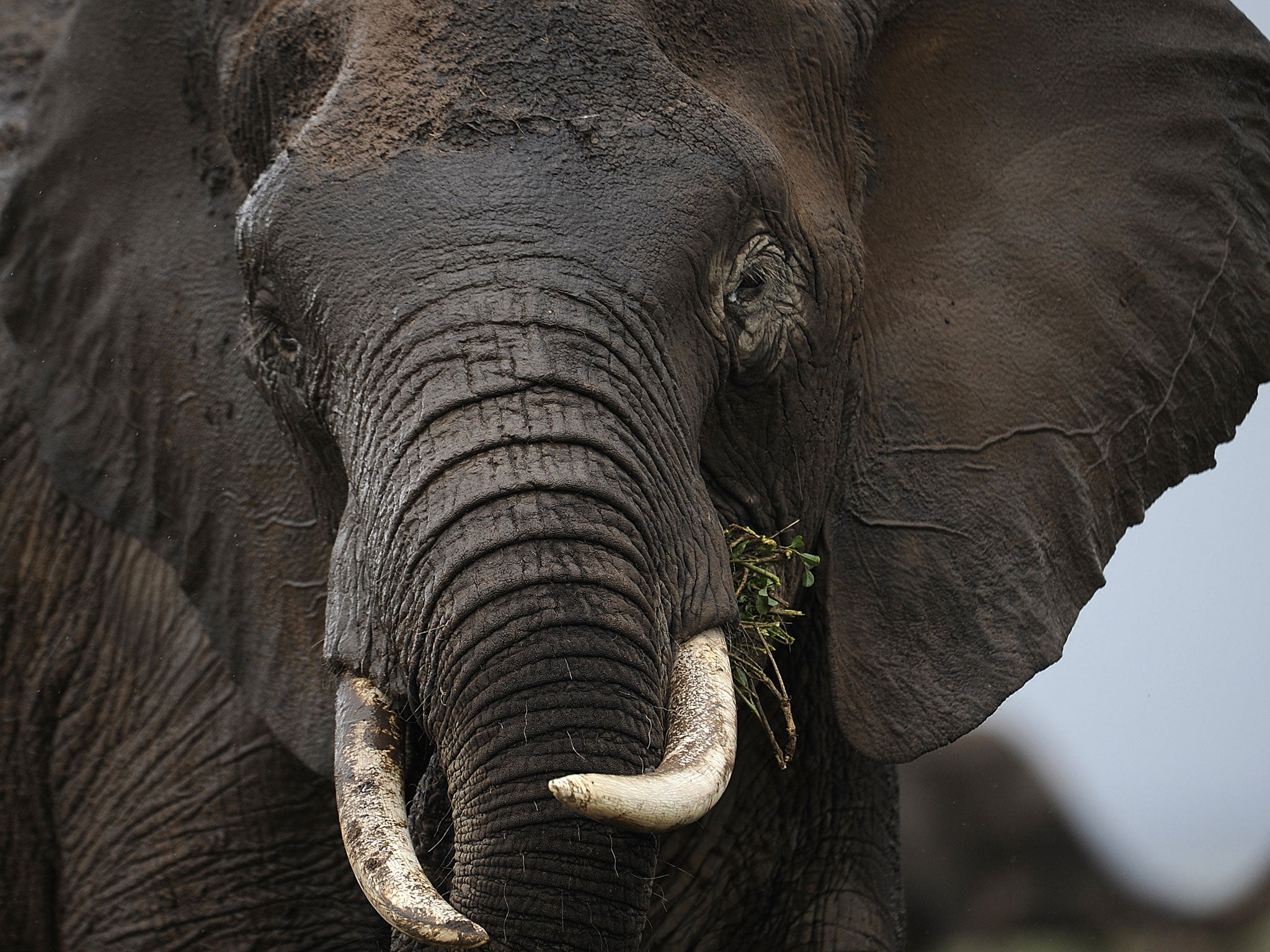Elephant Appeal: Tourist cash can save the elephant
Just as money drives the poachers, so visitors’ dollars can give communities a sustainable reason to protect their valuable wildlife. Simon Calder looks at the possibilities for East Africa


Having the world’s most extraordinary wildlife is crucial to the economy of the world’s poorest continent. The challenge lies in how to make that wildlife worth more alive than it is dead. The answer might be tourist dollars.
Tanzania’s national parks and reserves comprise the country’s most valuable resources – in two senses. The precious natural heritage of Mount Kilimanjaro, the Serengeti and the Selous Game Reserve has been recognised by the United Nations Educational, Scientific and Cultural Organisation (Unesco) as possessing “Outstanding Universal Value”. As Unesco says, the chances of success for conservation depend on “ensuring sufficient benefits for the local communities through the wildlife management areas and the improved management of hunting and photographic tourism”.
Two years ago, some members of the community evidently concluded that their interests were not being given sufficient regard. There was a sudden rise in the killing of elephants on the fringes of Tanzania’s Udzungwa Mountains National Park. Unesco said: “Rapidly expanding human populations in areas around the park and the farming of land up to the park border have led to conflicts between people and wildlife, particularly elephants roaming within the park, [with] a rapid increase in the number of elephants killed as villagers lose patience with elephants leaving the park to forage in their fields, destroying crops.”
The Wildlife Conservation Society of Tanzania was given an emergency grant by Unesco. It was used for some unusual defences – such as fences smeared in chilli oil, and beehives on the park boundary. They largely succeeded in repelling and containing elephants, and tensions eased. The same dynamic applies to creatures both great and small.
Shooting fish in a barrel might sound easy, but for a more substantial catch blast fishing proves extremely efficient. Detonating underwater explosions in order to stun fish and make them easy to harvest has been practised in a wide range of locations, many of them tropical. It is a lucrative business: “One blast can lead to a catch of up to 400kg of fish and a profit of US$1,800 in market sales,” says the Washington-based World Resources Institute.
The Coral Reef Alliance says: “Dynamite fishing is practised in up to 30 countries in South-East Asia and Oceania and is also common in Eastern Africa.” In a predominantly low-income nation such as Tanzania, the temptation is understandable. However, the practice turns coral reefs into rubble – and traumatises the rich eco-systems that they foster.
Tanzanian law stipulates “imprisonment for a term of not less than five years and not exceeding 10 years” for perpetrators. In practice, though, enforcement is patchy. The best hope for protecting the fragile marine environment is to align the coastal communities’ interests with protecting the coral – and sustainable tourism is an effective way to achieve that. Demand from divers and snorkellers for dazzling sub-aqua experiences endures only as long as the coral reefs exist.
The best way to tackle the problems: hard currency. An excellent example is the way that the mountain gorillas are protected with the help of tourists’ dollars. It is the world’s most expensive wildlife encounter: a gorilla permit, price $750 per person, allows a visit to a group of gorillas lasting just one hour.
Thankfully, people are queuing up to pay. The cash is needed to pay for manpower and equipment for the anti-poaching teams, and protection of the creatures’ natural habitat. Exodus, the adventure company, explains bluntly that the money is needed “to make sure that those involved with protecting the gorillas are paid enough not to be tempted by bribery from would-be poachers”.
The market price for a close-quarters encounter with elephants is much lower than for mountain gorillas, but the imperative to prevent poaching is just as strong. In the absence of a globally agreed and professionally enforced moratorium on the trade in ivory, nations that are blessed with elephants must make a pact with those who come to gaze.
It’s not just animals: the people of Africa also benefit enormously from eco-tourism. Organisations such as Kenya’s Northern Rangelands Trust are crucial in supporting fragile local livelihoods by providing school bursaries and water projects. Community-led conservation action, underwritten by eco-tourism, is the only solution to Africa’s enduring poaching crisis.
Each day, two Boeing 777s depart from Heathrow for Nairobi. The hundreds of passengers on board pay £83 each in air passenger duty – a tax that goes straight to the UK Treasury. While any levy has a dampening effect on tourist numbers, the prospect of paying a fee for the privilege of helping to protect East Africa’s wildlife should at least be on the table.
Meanwhile, an effective way to contribute (while at the same time having your own, unique encounter with The Independent team is to bid in our Christmas Charity Auction. The opportunity to climb a mountain with Simon Calder is Lot 22 in the auction: see independent.co.uk/Auction2013 (UK only – not Kilimanjaro).
To read more about The Independent's Elephant appeal click here
Join our commenting forum
Join thought-provoking conversations, follow other Independent readers and see their replies
Comments
Bookmark popover
Removed from bookmarks